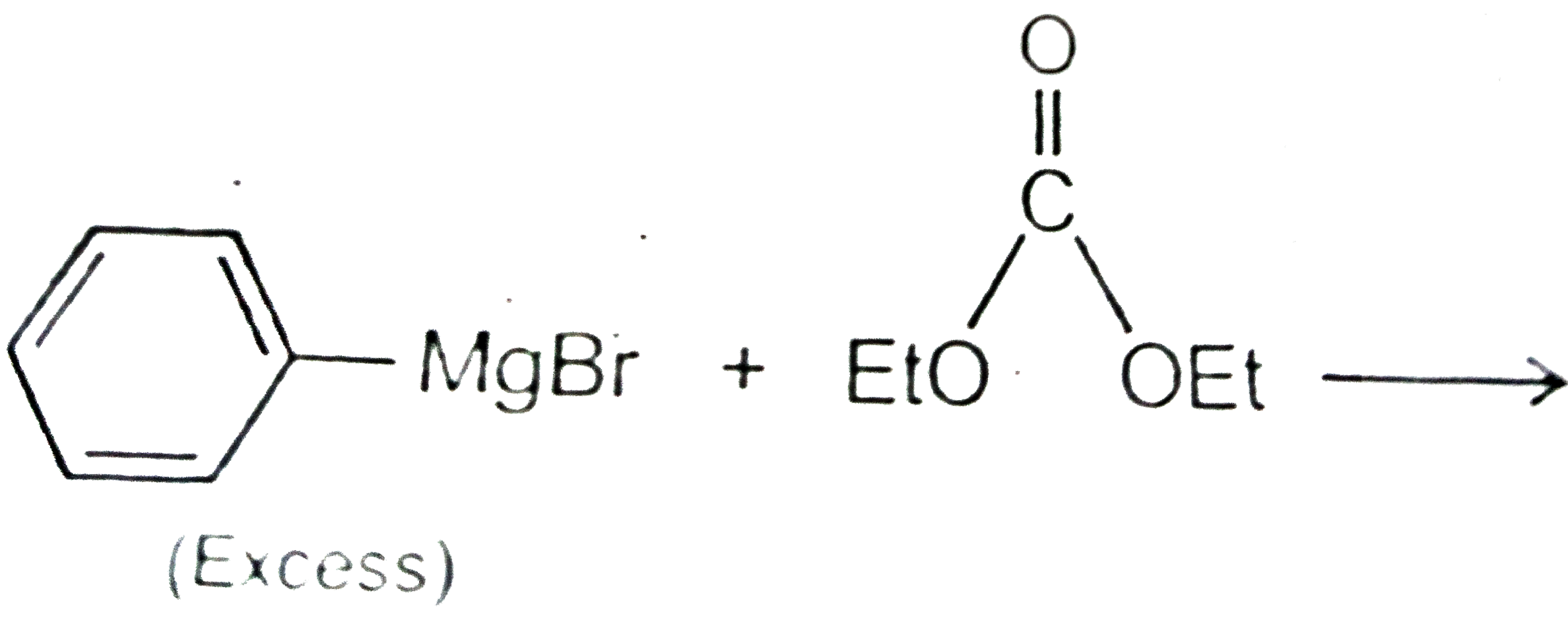Which of the following process do not yield alcohols ?
Acid catalyst hydration of alkenes
Hydroboration-oxidation of alkenes
Reduction of aldehydes
Free radical halogenation of alkanes
The correct Answer is:D
To determine which process does not yield alcohols, we will analyze each of the processes mentioned and see if they produce alcohols or not.
Step 1: Analyze Acid-Catalyzed Hydration of Alkenes
- In this process, alkenes react with water in the presence of an acid catalyst.
- The alkene undergoes electrophilic addition, resulting in the formation of an alcohol.
- Conclusion: This process yields alcohols.
Step 2: Analyze Hydration of Alkynes
- Similar to alkenes, alkynes can also undergo hydration.
- When treated with water in the presence of a catalyst (like BH3), alkynes can form alcohols.
- Conclusion: This process yields alcohols.
Step 3: Analyze Reduction of Aldehydes
- Aldehydes can be reduced to form alcohols using reducing agents (like LiAlH4).
- This reduction process converts the carbonyl group of the aldehyde into a hydroxyl group, forming an alcohol.
- Conclusion: This process yields alcohols.
Step 4: Analyze Free Radical Halogenation
- Free radical halogenation involves the reaction of alkenes with halogens (like Cl2 or Br2) under radical conditions.
- This process results in the formation of alkyl halides, not alcohols.
- Conclusion: This process does not yield alcohols.
Final Conclusion
Among the processes analyzed, the free radical halogenation does not yield alcohols.
- In this process, alkenes react with water in the presence of an acid catalyst.
- The alkene undergoes electrophilic addition, resulting in the formation of an alcohol.
- Conclusion: This process yields alcohols.
- Similar to alkenes, alkynes can also undergo hydration.
- When treated with water in the presence of a catalyst (like BH3), alkynes can form alcohols.
- Conclusion: This process yields alcohols.
- Aldehydes can be reduced to form alcohols using reducing agents (like LiAlH4).
- This reduction process converts the carbonyl group of the aldehyde into a hydroxyl group, forming an alcohol.
- Conclusion: This process yields alcohols.
- Free radical halogenation involves the reaction of alkenes with halogens (like Cl2 or Br2) under radical conditions.
- This process results in the formation of alkyl halides, not alcohols.
- Conclusion: This process does not yield alcohols.
Among the processes analyzed, the free radical halogenation does not yield alcohols.
Similar Questions
Knowledge Check
- Question 1 - Select One
Which of the following does not yield wool ?
AyakBcamelCgoatDwoolly dog - Question 2 - Select One
Which of the following does not yield wool?
AYakBCamelCGoatDdog - Question 3 - Select One
Which of the following reactions will not yield alcohol as the major product ?
A B
B C
C D
D
Which of the following reaction do not yield cyclohexanone as major product?
View SolutionWhich one of the following processes involved in alcohol production is not involved in wine production
View SolutionWhich of the following reagents will not yield alkene?
View SolutionWhich of the following reactions will not yield phenol ?
View SolutionWhich of the following process is employed to convert alkyl halide into alcohol?
View Solution
